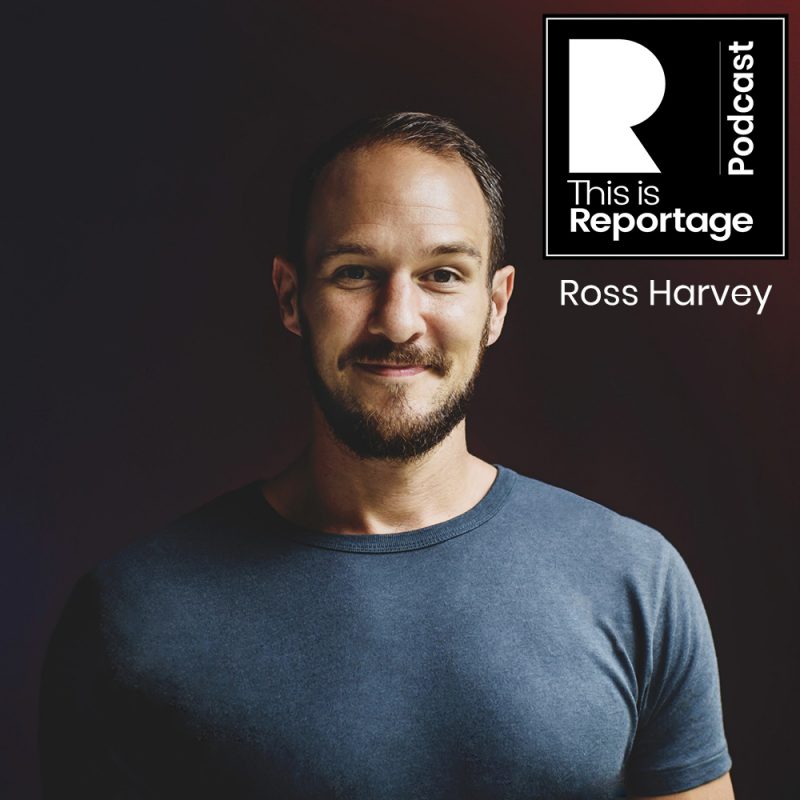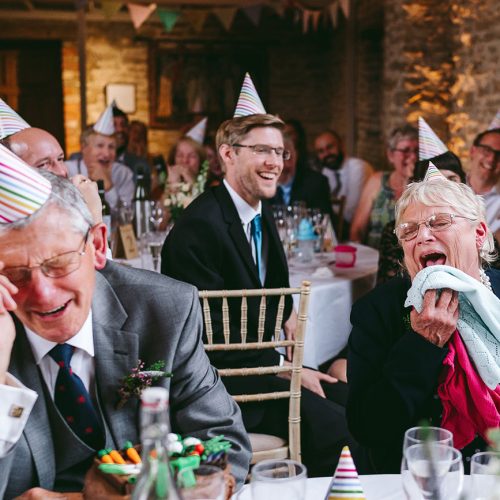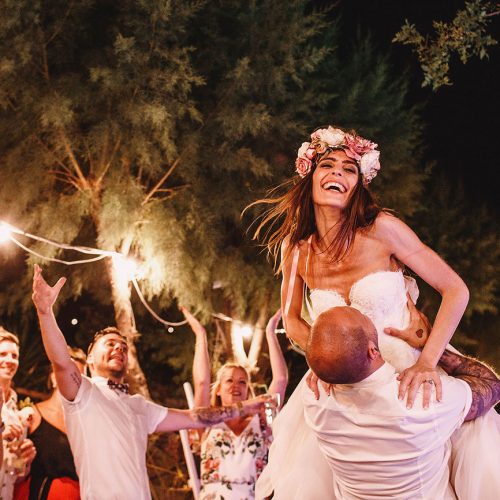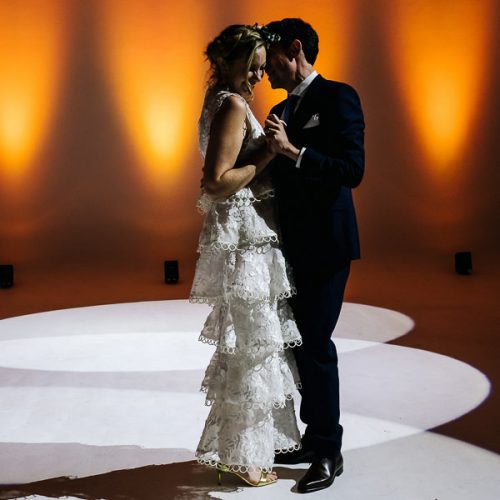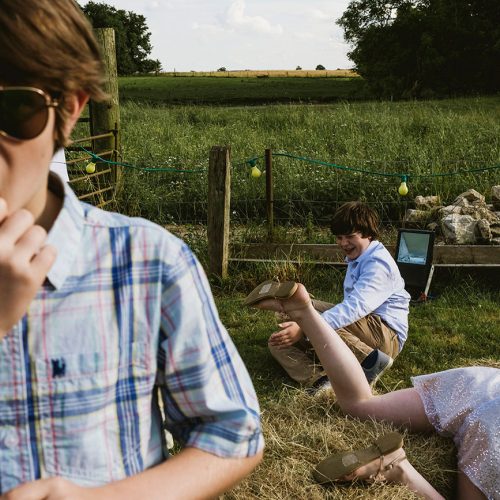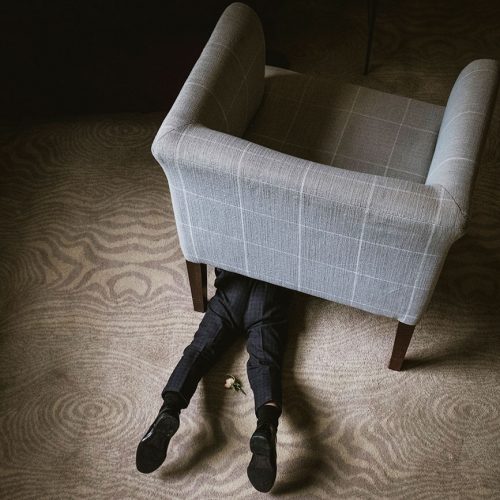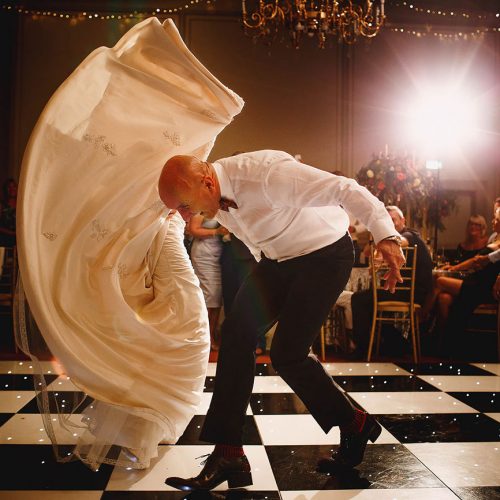Podcast Episode 2: This is Ross Harvey
We’ve launched the This is Reportage Podcast today with three episodes; for episode 2 we’re so honoured to have interviewed the brilliant Ross Harvey: Wedding photographer extraordinaire, Nikon ambassador, and a bit of a master of the mind. With countless Awards to his name (including ‘Best Wedding Photographer in England’ two years in a row at TWIA), and experience of teaching at conferences all over the world, Ross has a wealth of great advice to impart.
Ross shares so much in this episode, including:
how a special Christmas gift changed his life, getting bullied at school, being self-taught, what effect winning Best Wedding Photographer in England (TWIA) two years in a row had on him and his career, working with planners, graphic design, his favourite TV series, what ‘being successful’ means to him, happiness, making his own music, shooting other wedding photographers’ weddings, your inner voice, training yourself to be confident, changing energy from negative to positive, vegetarianism, his favourite music, tips for people who’ve been shooting for years, the downside of social media, his thoughts on Awards, the value of time, singing around the campfire, the power of visualisation, working with second shooters, how to get high-end weddings, not moaning about not being fed, how to become a better documentary photographer, why editing as fast as you can is not the way forward for him, what he’s terrible at, and more….
You can listen to the episode over on iTunes (where a rating or review would be massively appreciated; only if you like what you hear though, of course!), over on Spotify, or within this post below. We’ve also transcribed the entire interview with Ross below, just in case you prefer to read rather than listen.
Remember to subscribe to our Podcast to get notified when each new, weekly episode is released!
Alan Law: Hey, Ross. How you doing?
Ross Harvey: All good, thanks, how are you?
Alan Law: I am good. Very good, very good. Yeah. How’s things? Been a while since I’ve seen you. Been since last year, wasn’t it, I think?
Ross Harvey: It was last year, yeah. It’s been a good year, thank you. Shot some nice weddings. Shot a bit less this year on purpose, so it’s been nice and relaxed.
Alan Law: Good stuff, good stuff. You got many to edit at the moment, or is that all right?
Ross Harvey: Three on the pile then I’m done.
Alan Law: Oh, that’s not bad, is it? Then you can relax, and then we have NineDots to try and win our table tennis again.
Ross Harvey: Yeah, hopefully we can fix it again so we’re on the same team. Which we didn’t do.
Alan Law: We really didn’t do. They really thought we fixed it and we did not fix it, people. We didn’t.
Ross Harvey: No, it’s completely, completely natural.

Alan Law: Cool, Ross. So thanks so much for your time and coming on here. It’s really fab to have you on this. Your dad gave you a special Christmas gift with a note, “Follow your dreams.” Can you tell us about that?
Ross Harvey: Oh, yeah. That’s a pivotal moment in my life, that was. I owe him my career, basically, and happiness.
Alan Law: Man, big deal.
Ross Harvey: Yeah. Well, me and my dad always got on well, and I used to be a hardcore gamer playing Quake 1, 2, 3 and Counterstrike Source.
Alan Law: Okay, cool.
Ross Harvey: So we used to sit in the same study; he was working, I was playing games. He used to watch me sort of researching camera equipment, and he did actually see me looking at the D700 and posting about it on forums and stuff. So he just got it for me as a surprise at Christmas. But not just the camera; he put that by itself with a label, “Follow your dreams.” But when he went upstairs again on Christmas Day, he came down with three more gifts, which was the 24 – 70, 85mm 1.4D (what’s known as the ‘cream machine’), and the 70 – 200.
Alan Law: Man, that is an awesome Christmas gift though, isn’t it?
Ross Harvey: It was the most sort of generous, thoughtful present I’ve ever had. I haven’t got children, but if I did, I would just completely support them of their passions because you never know what can happen.
Alan Law: It’s so true. What was your childhood like in general? Happy? Did you like school? Good at it?
Ross Harvey: Yeah, I was just an average kid, really. I mean, I used to have long hair as a child, so I was the only one at school with long hair because my mom was a rocker. So I got bullied a lot, actually.
Alan Law: Really? Like, proper long hair, like shoulder length?
Ross Harvey: Yeah, yeah. Damn straight.
Alan Law: Man, I’m so jealous of that. That would take me about 30 years to grow.
Ross Harvey: I’m jealous of it now because my hair’s a bit thinner, so I’d love that hair now.
Alan Law: But you got bullied then, really?
Ross Harvey: Yeah, just a bit. Nothing serious. Nothing physical. But you know, children can be tough. When you’re a child, you don’t really understand psychology, basically, unless you’re some sort of genius prodigy. So you’re easily offended and upset. But it taught me a very valuable lesson. It taught me how to never treat anybody, so I’m actually pleased about it because it made me a better person.
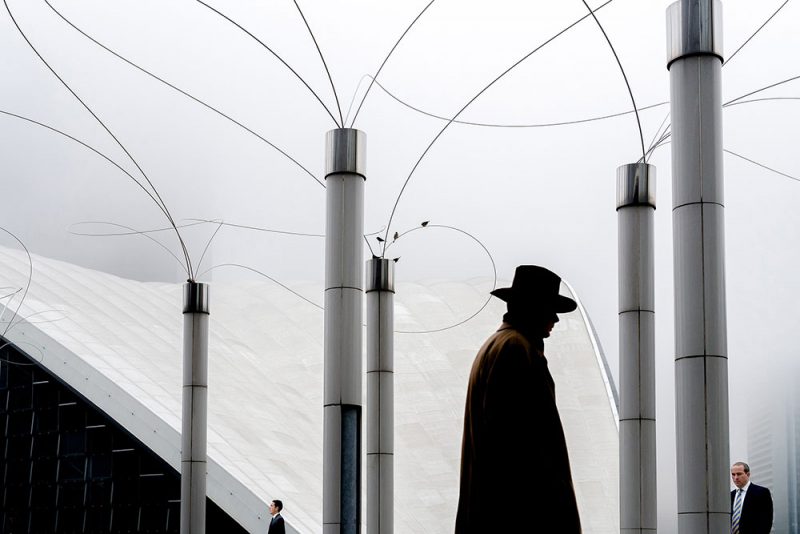
Alan Law: Man, yeah. That is a big deal though. At school, did you always dream of being a wedding photographer? I can’t imagine that was the case. What did you want to be back then?
Ross Harvey: Hell no. I wanted to travel around in a spaceship.
Alan Law: You do that now, don’t you? Isn’t that how you get between weddings?
Ross Harvey: Oh don’t tell anyone, Alan. That’s my secret.
Alan Law: Yeah. No, what did you want to do?
Ross Harvey: To be honest, I had no idea. I’ve always been artistic, so I used to draw all the time. I used to draw Marvel characters and my own super heroes and stuff. I’ve always been a bit of a sci-fi geek. When I went to uni, I did a Masters in Advanced Computer Science because I followed my father’s footsteps because he was a very good programmer.
Alan Law: Oh okay, cool.
Ross Harvey: When I was at uni, I taught myself graphic design, and left uni and did a programming sort of UI website design. That moved towards graphic design usability consultancy and brand design. When I was doing that, I taught myself photography and then I ended up doing that. So all my income has been from self-taught stuff, ironically.
Alan Law: What, just kind of looking on the internet and getting books and things, or?
Ross Harvey: Books, the internet … Not so much books now a days. But it was the internet, and just practice. Because I loved it, I devoted every waking moment to it. When I was a programmer and a graphic designer and I just found out about photography and discovered I loved it, I didn’t stop. I was just shooting and shooting and practicing and reading. I mean, when I get into something, I’m 100 miles an hour.
Alan Law: I think that’s a really good way to be, isn’t it? You’ve just got to put your all into everything. I guess it’s fair to say it’s worked out well for you. You’ve won Best Photographer in England two years running at TWIA, which is amazing. I mean, you’ve won loads of other awards as well. But that one specifically; did winning that award have a notable impact on your career? Did couples book you specifically because of that?
Ross Harvey: I think it helped more so with my confidence, because I didn’t shoot any differently. But to have that sort of recognition was very helpful for me at the time. It mainly helped with planners, because couples … If you’re a really nice guy or girl and a photographer and you’re shooting for your couples, and they love you, they’re going to recommend you anyway regardless if you’ve won awards or not. But sometimes it’s helpful with planners and stuff. Like, they go, “Oh.” They might check the website to see your work if they entered, so you might find a planner will recommend you just because you won that. That happened a little bit to me. When you get in touch with planners who are non-UK or abroad, those credentials can help a bit. I mean, it’s all about your portfolio and your personality, 100%. But these things just give them a little mental tick box that you’re actually a safe person, if that makes sense.
Alan Law: Are you safe though, Ross? Are you safe?
Ross Harvey: Absolutely not.
Alan Law: How do you get on working with planners in general? Do you enjoy weddings that have planners? Are most of your weddings now involved with planners?
Ross Harvey: All of them, yeah.
Alan Law: Wow, really? All?
Ross Harvey: Yeah, I’m used to it now. To be perfectly honest, I’ve been very lucky. I tend to shoot with really nice people, albeit it planners and couples. So the myth that shooting planned weddings of high-end stuff is tough is not true, really. I mean, it’s very challenging. I don’t think some people realize that when you shoot these high-end weddings with high-end planners and people who expect the best of everything … They wear the craziest clothes and jewelry; there’s a lot of pressure for you to deliver. So it’s not just a thing of going out and shooting this beautiful scene in front of you. Sometimes you have to work very hard to make it look good.
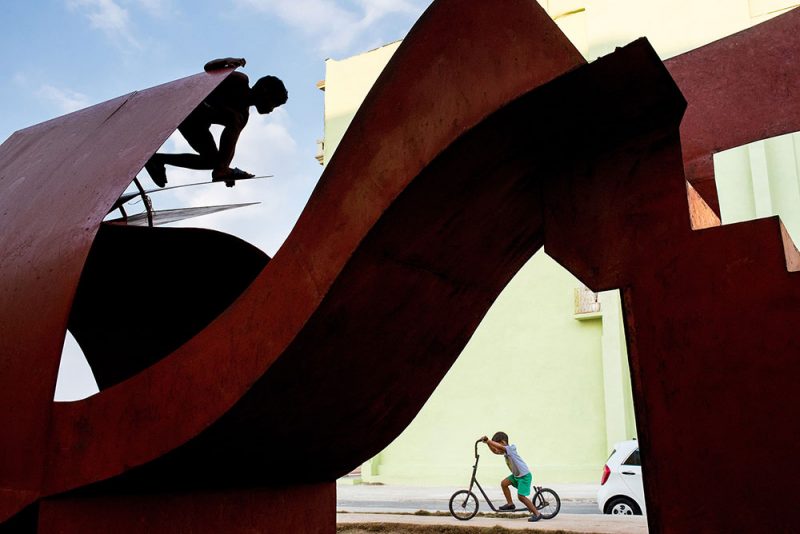
Alan Law: As you picked up on there, though, as well, a lot of wedding photographers are kind of scared of raising their prices because they think their kind of client base are going to really, really change and be perhaps a bit more, I don’t know, a bit more difficult as they go up in price bands. Have you not found that to be the case?
Ross Harvey: Absolutely, 100% not. In fact, I’m having the most fun of my life at the moment with the weddings I shoot. Because A) I get to go to some beautiful places for free. In fact, you get paid for it. And B) I shoot a lot for Americans now a days, and they’re just generally super laid back. They have a free bar so everyone gets smashed in the evening and I have a few drinks with them. So it’s just one great big celebration and party at the end. I mean, I think-
Alan Law: That’s cool.
Ross Harvey: … a wedding photographer’s one of the best jobs you could possibly have ever. I think we’re so lucky.
Alan Law: We are so lucky, aren’t we? What would you do if we weren’t this lucky? If you weren’t a wedding photographer, what do you think you would be doing now?
Ross Harvey: I would be doing design stuff because I still love it. I’d be working with doing brands and probably still websites.
Alan Law: I bet that that’s come in really handy for your own career; your website, that kind of graphic design knowledge. Do you design all your kind of website stuff and logo and things?
Ross Harvey: Yes. Yeah, I did it all myself. I’m currently working on a new website because my current one is so old and it’s got such old content on. I’ve got like, two, three years of awesome stuff to put on there. So hopefully by December, I’ll have launched a new website with all new content.
Alan Law: Oh, that’s cool.
Ross Harvey: Just a little plug there.
Alan Law: Yeah. No, you’ve got to do it, man. You’ve got to plug away. Plug away.
Alan Law: Okay, going to slightly change tack to say, or ask, what is your favorite or the very best Netflix or other streaming service, we’re not sponsored by Netflix, TV series ever that you’ve seen?
Ross Harvey: It’s got to be Breaking Bad, but with a second place very close with The Boys, which is that dark superhero series which-
Alan Law: Oh, I’ve not seen that. Is it good?
Ross Harvey: Oh, you have to watch it. It’s absolutely brilliant. Yeah. If you like sci fi and you’ve got dark humor and you don’t mind a bit of grittiness, it’s just absolutely brilliant. But on a sort of side note, Peaky Blinders, I don’t really enjoy it as much, but people should watch that just for the cinematography and the lighting. Because my goodness, I’m watching it with Holly at the moment and it’s just done so well.
Alan Law: Oh, cool. Yeah, I like Peaky Blinders. I’m from the Midlands as well, actually, so it’s like watching home with a lot more kinda smoke, and fire, and murder. But I love Dark, by the way. If you like sci fi, have you seen Dark on Netflix?
Ross Harvey: Do you know what? I watched the first two episodes, but then the season went crazy and I haven’t finished. But like Rousey was telling me, I have to watch it. Apparently it’s brilliant.
Alan Law: It is, honestly. It’s amazing. It is amazing.
Ross Harvey: Okay, that’s my next watch.
Alan Law: Definitely. Do it. Watch it with subtitles as well, not dubbed.
Ross Harvey: That’s what Rousey said; it detracts from it if it’s dubbed, doesn’t it?
Alan Law: Yeah, totally. And it’s good to practice a bit of German as well.
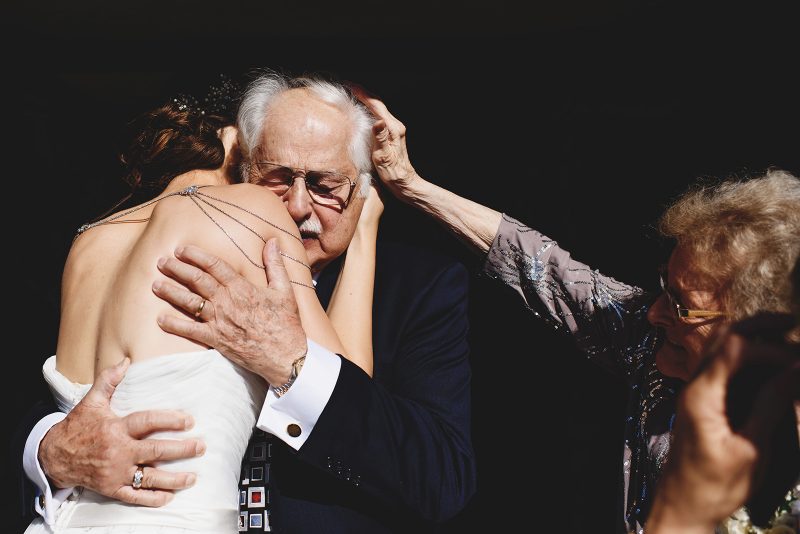
Alan Law: Okay, let’s get a slight change of tack again. What does it mean to be successful to you?
Ross Harvey: Ah that’s a question…This is going to sound like a cliché, but to me it’s just being happy.
Alan Law: Honestly man, but that’s the biggest thing in life. It is.
Ross Harvey: It is. If you’re happy, you have a good life. It’s that simple. You should be taught that at school, really. Rather than everything being educational in terms of intelligence, you should be taught emotional intelligence and how to deal with stress, how to find happiness, and how to set your own personal boundaries and stuff. It’s so important yet no one really knows anything about it.
Alan Law: Well yeah, I guess so. But yeah, what makes you particularly happy? What is it and things in life that makes Ross Harvey happy?
Ross Harvey: Well, apart from gin and tonic, it’s creative fulfillment. I like to be able to express myself creatively, and it doesn’t really matter if people give me feedback anymore or not. It’s great with photography, but my other passion and hobby is making music and I haven’t shared anything with that yet. But I just love doing it because it just makes me happy to be in a creative zone.
Alan Law: Oh wow, cool. What kind of music?
Ross Harvey: Electronic stuff. It’s a bit complicated, actually. It’s not a typical sort of EDM type thing. I’m trying to make an album, or an EP, which is story based, and it’s about a dystopian sci-fi future; some guy escaping an oppressive culture and breaking his way out and being chased and stuff. So there’s a whole story about it-
Alan Law: Wow.
Ross Harvey: … but I’m about halfway through. I just love the process.
Alan Law: Man, that sounds awesome. Is it going to have vocals as well, or is it all just purely electronic?
Ross Harvey: Yeah. Yes.
Alan Law: With vocals as well?
Ross Harvey: It’s got vocals. Yeah, my own vocals believe it or not.
Alan Law: Oh wow, man. That’s awesome. That’s really exciting.
Ross Harvey: Yeah. Funnily enough, I’ve got a bit of … Sort of a low, soft tint to my voice accent. But when I’m singing, I sound more American which is a bit bizarre.
Alan Law: Oh wow. So when can we expect to have a little teaser of that then?
Ross Harvey: All being well, mid Q1 of next year I think I’ll be able to release something.
Alan Law: Man, that’s really exciting. I think that’s so cool to kind of challenge yourself and do different things like that as well.
Ross Harvey: Yeah, yeah. It’s insane how difficult creating music is. The engineering side of it; not just being able to produce well, but looking at EQ and compression and the nuances of that. It makes photography look very easy in comparison.
Alan Law: Right, yeah. I mean, I had a little bit of experience with that. In my past life, I used to record songs for people as gifts. That was my past business, so I used to do-
Ross Harvey: That’s really cool.
Alan Law: But yeah, exciting, man. That’s cool.
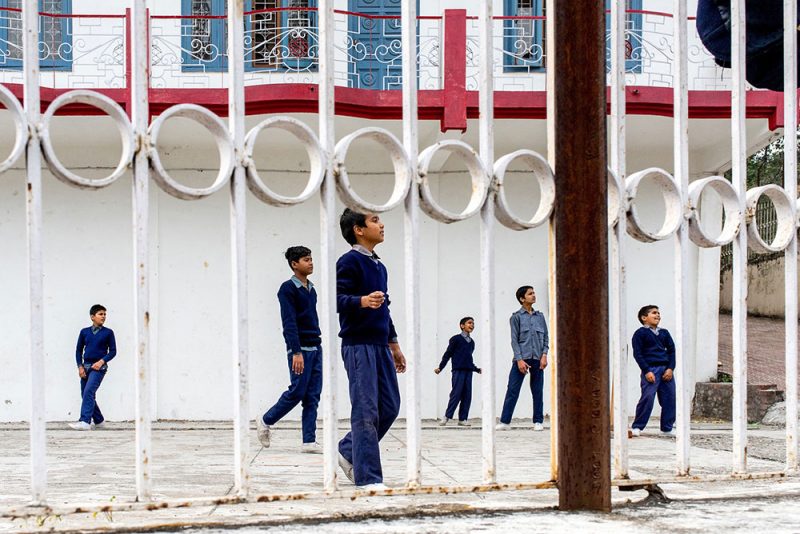
Alan Law: So you’ve shot a lot of fellow wedding photographers’ weddings. Do you enjoy that? Do you feel extra pressure when you’re shooting for another wedding photographer?
Ross Harvey: No, not at all. I don’t feel pressure at all when I’m shooting. I’m confident with who I am and what I’m going to deliver to people. So I actually love shooting for photographers because they just give you complete creative freedom. They’re like, “Where do you want the first dance to be? Where’s the best light? Where’s the best background? Just choose it. Choose where you want to put us and we’ll do it.”
Alan Law: Oh, that’s cool.
Ross Harvey: I thrive in that situation.
Alan Law: So wedding photographers are like the perfect client.
Ross Harvey: Yes, although they all think I’m too expensive. Those days are gone now.
Alan Law: It’s funny that you mentioned nerves though, actually. I did a podcast interview with Adam Johnson a couple of days ago, and he mentioned you in it, actually. He said how he spoke to you about nerves and that you don’t really get nervous, which is amazing, I think. I think a lot of wedding photographers do suffer from nerves, so do you have any kind of advice and tips about that at all?
Ross Harvey: This is what I teach in workshops and one-to-ones and stuff. But obviously I do get hit with adrenaline and excitement or nervousness, but it’s an energy, isn’t it? You can either make it fear or you can make it excitement. You just change the energy to be one of the two. Of course, I’m not some sort of Buddha that floats around. I have my own fears and issues. I might get hit with a little instant burse of, “Uh oh, this is going to be tricky.” But I don’t generate that, I don’t perpetuate that as fear and my lack of ability. I just turn it into, “I can do this, so I have the skill to do this. I can get on with this.”
Ross Harvey: So you have to be very confident in the way you speak to yourself. Your inner voice, most people don’t realize, is a reflection of your belief system. It’s a massive, massive thing to know because it just reflects back to you how you think. So if you listen to your inner voice, you can hear the sides that’s saying, “You can do things,” and you can hear the side of you that says, “You can’t do things.” Listen specifically to the bits that hold you back and then you can delve a lot deeper into how to do that. I mean, it’ll take like a two-hour podcast to get down. But it just helps you analyze yourself.
Ross Harvey: That links back to the happiness thing, because once you start doing that, you’re a lot happier. And when you’re happy, you’re creative.
Alan Law: It sounds really difficult to do, though. Have you always been able to kind of do that then? Were you kind of never nervous, even when you shot your first wedding?
Ross Harvey: I mean, I’ve always been a relaxed person. I think that did bleed through into my professional life. But everyone gets nervous; it’s just what you do with the energy. You can turn it into something else. Stage fright is getting that initial … Say you’re going to go into a talk in front of 200 people. You’re just behind the curtain. I get nervous. It’s like, “Ahh, I’ve got to perform now.” But stage fright, if someone gets it, is taking their energy and saying, “This is going to be hard. I can’t do it. I don’t think I can do it. I can’t do it. I can’t do it. I can’t do it.” And you push yourself into a big hole, and you literally … The fear takes you over so much, you physically can’t go on stage. It’s what stage fright is.
Ross Harvey: Or you can take that energy and say, “I’ve prepared for this. People want to hear what I’ve got to say. I’m going to do my best to teach people something or at least open their eyes to something, so they leave wanting to try something or feeling better about themselves. I’m just going to go out and I’m going to do it.” You can change that energy into something else, and it’s your choice to do that. Everything is a choice in your life, positive or negative. Every single moment of your life and every single decision, you get to choose. Of course, if you have depression, which both my sister and my mother have had, it’s much, much more difficult, and that’s a psychological issue that needs different treatment. But if you’re not clinically depressed and you just are prone to being negative, it’s actually easier than you think. It’s just repetition, because the brain is a …
Ross Harvey: An analogy I like to use is a field full of reeds. If you wear a path through that field, like a clear, dusty walkway, your brain will fly down that path easily because it knows where to go. If you’ve been negative, you’ve just basically got a path like that in your brain and your neurological network. To think of something positive which is different, you have to sort of jungle mode. Get your machete out and start cutting through the reeds to make a new path. The brain finds that a bit more difficult because it wants to go down a path it can see. So it’s just a point of being very repetitive and being like a sentinel of your own thoughts and going, “Ahh, I’ve got you, negative thought. This time I’m going to think positively.”
Ross Harvey: The more you do it, the more that path gets cut and worn until it becomes a habit, and that’s the secret to developing new habits, is just literally persistence. That’s the thing that most people fail on, because they think if they fail in the first week, they’ve failed. But it takes months; I’ve been doing it for years.
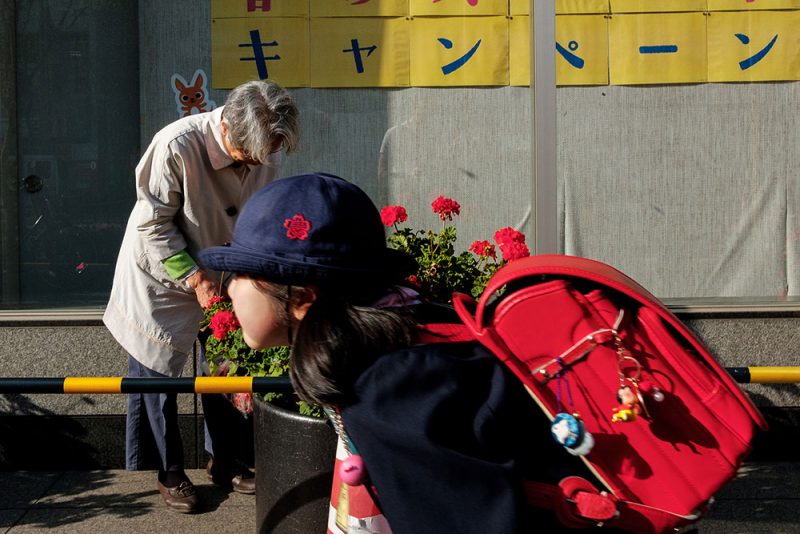
Alan Law: I mean, that’s good to find out that it’s something that people can train themselves to do though. So you think it’s within everyone’s reach to be able to do that, with practice and dedication?
Ross Harvey: 100%. We’re all equal. We’re all very, very capable beings. It’s just persistence.
Alan Law: I need to try it. I do need to try it, because I still get nervous about things. Yeah. You’re always kind of know as this, I think within our industry, a really kind of happy and positive person. So it obviously really, really works for you. Does anything get Ross Harvey down?
Ross Harvey: Yeah. The fact that I failed being a vegetarian all the time gets me down because it’s something-
Alan Law: McDonald’s drew you in? Was it McDonald’s drew you back?
Ross Harvey: I love your McDonald’s posts, Alan. They make me bizarrely happy whenever I see one of those. I know the world is right and things are just continuing when I see an Alan Law McDonald’s post in the evening.
Alan Law: Oh, that’s funny.
Ross Harvey: No, it was actually a bacon sandwich on the barbecue. My neighbors … I smelled the bacon on the barbecue and I was just like, “You know what? I’m just going to have one of those.” That’s been a year now since I had that.
Alan Law: Bacon is the downfall. That’s funny.
Ross Harvey: Yeah, but I’m going to go veggie in 2020 again.
Alan Law: Oh, are you? For what reasons?
Ross Harvey: Animal welfare.
Alan Law: Yeah? Okay, well that’s a very good reason to be vegetarian. A totally original question here: you’re cast away on a desert island. What one album would you take with you?
Ross Harvey: What a question.
Alan Law: One album.
Ross Harvey: Man, you should’ve given me some warning on this because it’s going to take me 10 minutes to figure this out.
Alan Law: Well, you know … Yeah. It’s a big question, isn’t it. If you’re just there that whole time, you can only listen to one thing. I don’t know what I would choose.
Ross Harvey: I’m just opening up Tidal just so I can try and cheat and look at some albums. Because you know when someone asks you a question, “What’s your favorite song?” your brain just goes dead, doesn’t it?
Alan Law: Yeah, that’s true.
Ross Harvey: It might be something by Dire Straits because that just reminds me of being a kid. Or it might be Wish You Were Here by Pink Floyd. That would be very, very high up in it.
Alan Law: I’ve not listened to either.
Ross Harvey: You should listen to both of those. I actually really like Ladies and Gentlemen by George Michael. I think it’s a cracking album, because I’m not really a fan of the Wham! stuff but there’s some beautiful songs that most people don’t really know of, like Spinning the Wheel. What’s another one on that thing? The Strangest Thing. It’s got some really beautiful songs on there that aren’t really that poppy, Wham! kind of stuff that I’m not really a fan of.
Alan Law: Okay.
Ross Harvey: But it’d probably be Pink Floyd, to be honest.
Alan Law: Okay, I will allow you to have Pink Floyd on your desert island.
Ross Harvey: Thank you about that.
Alan Law: Totally original.
Ross Harvey: Very kind of you.
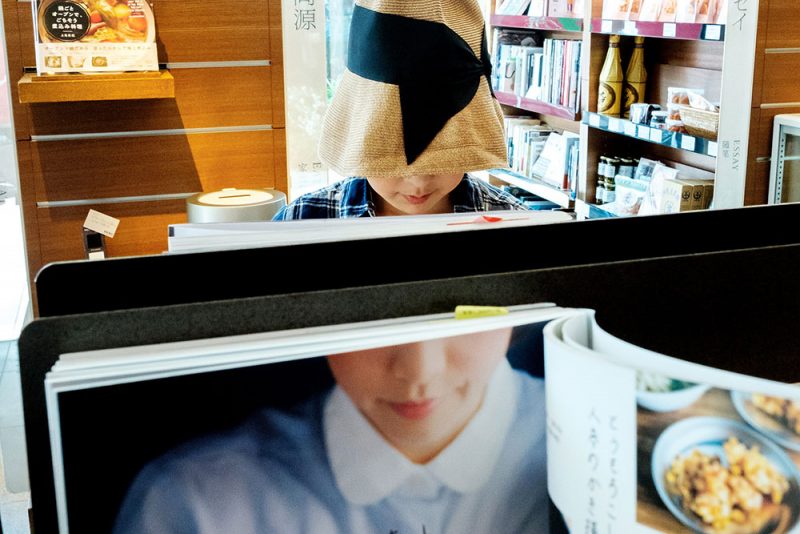
Alan Law: Do you think about the future? Not being cast away on islands, but the future in general. Whether you’ll be still shooting weddings in 10 years’ time?
Ross Harvey: Nope, not in the slightest. I just do what I’m passionate about.
Alan Law: That’s good though, I think. That’s really important. I think throughout life, people are always saying you should always have this kind of plan, five, 10 years ahead. But yeah, you don’t see life like that?
Ross Harvey: No, and I’m not saying that’s the right thing to do. I mean, obviously I’ve planned and I’ve saved finances and I’m secure in what I’m doing. But I’ll shoot weddings when I’m passionate about it, and that’s one of the reasons I shoot less now. Prices up, volume down because it keeps me loving it. I don’t really want to burn out. I’ve been doing it 10 years now and I’ve shot hundreds of weddings. If I was still shooting 30 to 40 weddings in the same location for 10 years, I’d probably be getting a little bit bored, a bit of a plateau. So I push myself so hard because it just keeps me creative and it keeps me growing and it keeps things new for me.
Alan Law: I totally get that. Yeah, 10 years is a long time to be shooting. I mean, what advice would you give for people who have been shooting a long time like that and who are maybe feeling not too happy with their careers or they feel it’s a bit stale? Do you have any kind of tips for that?
Ross Harvey: Get off Facebook and get off Instagram. Seriously, because it’s just a killer. I don’t really use Facebook, and I’m terrible for Instagram as most people know. But I think social media is a big problem, especially for the younger generations because there’s so much pressure to perform and put this up and get likes. That completely detracts from why you shoot photography. You don’t shoot photography to get likes from someone; you shoot it because you love it and other people are benefiting from it. If you focus on just that, your career will be absolutely fine. It’s when people start to second guess themselves and they start looking at all these other Facebook posts and stuff like that, you tend to put yourself down too easily.
Alan Law: It’s so true, isn’t it? It’s like a cycle. You look on Facebook, you see what kind of images are getting all the likes, and then people replicate that, and then everybody’s creating the same kind of off camera flash back lit portraits. It’s just not about that.
Ross Harvey: That’s exactly right. That’s one of the reasons I stopped entering awards years ago, because I just got fed up with the same stuff being regurgitated. Hats off to you for doing a photo journalistic one, because it’s less of a fad-based thing, isn’t it? Because you’re not just doing the back lit OCF or the umbrella rain shot.
Alan Law: That’s true. No, yeah. Yeah.
Ross Harvey: But at the same time, I don’t personally go into awards anymore because I’ve found a rhythm that I’m happy with, and I’m totally comfortable with what I do regardless of what other people think now. But when I was in a plateau a few years ago, entering an awards system did really help me because it pushed me and I tried to beat things. That gave me a nice push at the time, so I think that can also be very beneficial, as long as it’s to push yourself and not to actually win and compare to other people.
Alan Law: Definitely. 100% agree. Do you not look at kind of any other wedding photographers’ work now? Have you never really done that, or?
Ross Harvey: When I was super passionate learning mode, I was looking at it all the time, just reverse engineering all of my favorite shots and understanding why shots worked. The composition, the focal length, the emotion, the layering; all that stuff. But now I don’t look at wedding photography at all. In fact, it’s one of the reasons I don’t open my Facebook page because I’ve got like 5000 friends on Facebook, and I probably know about, in person, 100 of them or 200. The wall is just full of the same pictures and I just can’t look at it. So I keep myself away from it, so when I do shoot a wedding, for me it’s fresh and I’m using my own ideas. I’m using my own creativity. It just keeps me happy.
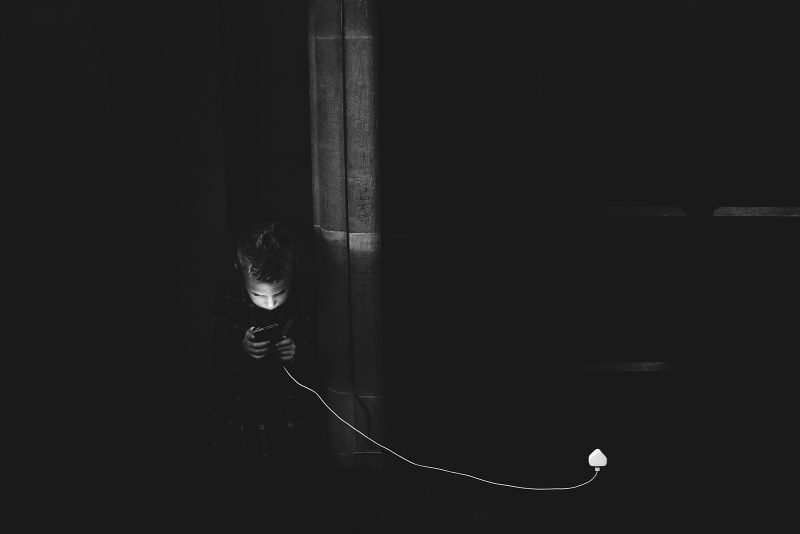
Ross Harvey: You asked me a question about what does it mean being happy. I think also it’s having time. I always say this, but time is the most valuable currency. It’s more important than money. It’s more important than likes. Because with time you can do things you want, like learn a bit more about photography or spend time with your kid or just spend time chilling. So I’ve built a life around me, which is very modest in the place … I mean, I’ve lived in the same house for 12 years. I could buy something much bigger and nicer, but the neighbors have become best friends. We hook up in the summer and we chill out. I’m in a little semi-detached three bedroom house, and we love it here. So we live well within our means, and that gives me the ability to have so much time to spare because I don’t have really high outgoings. I haven’t got myself in a massive mortgage or bought a massive car with a monthly fee.
Alan Law: You don’t buy equipment all the time?
Ross Harvey: No, no. I’m still using D750s, and because I’m an ambassador for Nikon, you get some sort of handy perks. So-
Alan Law: Yes, that must be good.
Ross Harvey: …I’ve got some new cameras to play. Yeah, I’m not going to lie.
Alan Law: So I mean, I totally agree with you on that time front as well. Say, if you had 24 hours totally to yourself to do whatever you wanted and money’s no object, what would you do?
Ross Harvey: I’d make music on a beach.
Alan Law: On a beach? That would be quite difficult then, wouldn’t it though?
Ross Harvey: Well maybe I could get some sort of soundproof studio that looked out across a Bali or Hawaiian beach and I could just sit there making music and just pop out for the odd cocktail. That would be damn amazing.
Alan Law: That does sound a good 24 hours. Do you know what? I think one of my fondest memories of being with you actually, is when at Snap, when we were playing guitar around the fire-
Ross Harvey: Oh, I loved that.
Alan Law: Yeah, and we’re all singing. That was great, wasn’t it?
Ross Harvey: Moments like that is what makes life so beautiful. I actually got goosebumps thinking about that because that’s been burned in my memories for years as well, Alan. The fact you brought a … I was so happy you brought a guitar. Sitting around a campfire just singing together; that sort of stuff is so valuable to me. That was so cool.
Ross Harvey: Can I just backtrack slightly? Because it’s something important that I didn’t mention that you asked me.
Alan Law: Of course, yeah.
Ross Harvey: You said about imagining the future. There is one thing that I did when I was starting out, which I think is actually very valuable. Now, I’m not going to go off on like a massive sort of spiritual or crazy tangent, but-
Alan Law: You can if you want.
Ross Harvey: No, I won’t. It’s not really appropro at the moment. But you heard about Jim Carrey, right? He used to sit on top of the hill on his … Hollywood or something? This was before he was famous. He just sat there at the top of the hill and said, “I’m a world famous actor. I’m a world famous actor. I’m a world famous actor. I’ve earned a million dollars.” And he wrote himself a cheque for a million dollars and put it in his wallet.
Alan Law: Really? No, I didn’t know that.
Ross Harvey: Yeah, and he kept looking at it every night and saying, “Thank you for this. I’m a world-famous paid actor. I’ve got a million dollars for this film.” Yeah, literally a year later, he got his first job and he got a million dollars for it. Yeah, I’m not saying that’s going to work for everyone because you have to put the work in.
Ross Harvey: But I used to sit in my back porch when I was starting at photography saying … Not, “I’m the world’s best.” I’d say, “I’m a world-class photographer. I’m a world-class photographer.” And I was very grateful for it, so I did use visualization and intention as well as going through all the learning and the trying and the failing and the failing and the failing and the failing and the trying and the failing and the trying. Because it takes effort. But I always said to myself and believed it as it was true, “I am a world-class photographer.” So that set my standards really high. Whether you look into the law of attraction or spiritual stuff or energy and all those things and you don’t believe it or not, doesn’t matter. Because psychologically, that sets a bar that will push you with just simple CBT and simple NLP stuff with the mind tricks. Simple psychological tricks. You will push harder because you believe you’re that good.
Ross Harvey: I always looked at people like Ronaldo and Messi and anyone who is at the top of their craft, because you know that they had a belief system that said they’re going to be the best or they are the best and that makes them work at a certain level. I did that for photography. I do believe I’m a world-class photographer now because if I can shoot anything and be comfortable with it, and I believe that’s what makes you a very good photographer, is being able to shoot anything well … I don’t mean to brag or anything, but that’s like a confidence that means that you are free, which means you can be creative and deal with all sorts of situations. Like if you get a dark church in the UK, it’s fine. If you get a sunny beach, it’s fine. If you choose flash, it’s fine. If you don’t, it’s fine. I think if you aim for that, anyone becomes world class.
Alan Law: Well, it’s totally worked for you, man, as well. Hasn’t it? It’s an exciting possibility, the thought that people can do this, can apply this to themselves and it can obviously work.
Ross Harvey: Anyone can do it. It’s literally just being a persistent mofo. To the point of being kind of, “Fake it until you make it.” That’s what I did. If I wasn’t confident, I pretended I was, and that’s how you sort of burn that new pathway in. Any single person in the world can achieve anything, really. I mean, obviously there are certain limitations with things, maybe physically or mentally. But looking at an average of people, any single one that we see who is in your This is Reportage, or who goes to NineDots; any of those people who we know could easily become anything they wanted. It’s just literally mindset and application.
Alan Law: I think that’s awesome and I think it’s a fantastic way to view life, as well. Yeah, that anybody can kind of do anything if they apply themselves to it and believe that they can. So yeah, that’s awesome.
Ross Harvey: If you look at any research, people who have achieved anything they want, either it being finance, football, sport, skills; they all say the same thing. They say, “I’m the average Joe who just went for it and believed in it, and look where I am.” That’s the common denominator between it all.
Alan Law: No, that’s cool. That is cool. Am I right in that you shoot the vast majority of your weddings solo? Does that work better for you?
Ross Harvey: That was the case, but for this year, the weddings I’ve shot have been even more sort of high end, and I’ve had to have a shooter with me. At least one.
Alan Law: Okay.
Ross Harvey: And sometimes two, depending on the scale of the wedding. But I built my career shooting solo, yeah.
Alan Law: Do you enjoy now working with others, or is it just more of a necessity because they’re so big, these weddings?
Ross Harvey: It is a necessity. But at the same time, I do love the bit of banter you get working with someone and knowing that you work with someone you can trust, and they’re doing something so you can focus without having to think, “I’ve got to get back to X, Y, Z.”
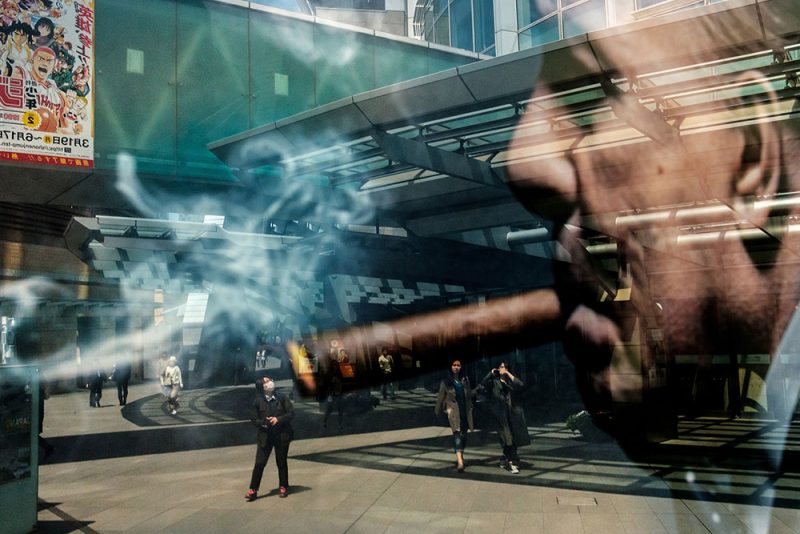
Alan Law: Right, yeah. That’s true. With these very high-end weddings … You’re in the real high end of the market now; I think that’s fair to say. A lot of wedding photographers do aspire to this. Have you got any advice on how to get there and get these big weddings?
Ross Harvey: Mine came about sort of through recommendations within planners after I got to a certain point. You just have to be confident, really. You have to be able to cope with different situations. Because like anything, professionals and peers and colleagues, they like to work with people who make their lives easier. You and I would like to work with someone who made their lives easier, right? Everyone does.
Alan Law: Yeah. Yeah, definitely.
Ross Harvey: So when you’re working with people, just don’t be a burden. Being a burden might mean that you get negative about something or you’re trying to force something there isn’t really time to do, or you’re taking too long with the portraits. But I just make sure that it’s effortless working with me, with whoever I’m working with, so they can quite happily recommend me because they know it’s going to be easy for them and they’re going to get great pictures. So it’s being confident with your skills and understanding that it’s actually a team. Because when you work with planners at high end, you don’t go there as the photographer who’s going to do this and do that. I mean, you have that intention but you have to work within a team, so it becomes like a big project that you have to plan and be prepared for. There’s a lot more planning involved, especially in big weddings, because you have to sort logistics of … You sometimes need a golf cart to get from the ceremony … You have to hire a car because the venue’s so big, you’ve got to drive from the prep on the same bit of land to the ceremony.
Alan Law: That is mad.
Ross Harvey: Yeah, it’s crazy. I was in a horse and cart this year trying to get from the prep to the ceremony. The damn horse and cart … I mean, how bizarre is that?
Alan Law: That is very different. That’s such a cool thing though, isn’t it, as well? Life’s so varied as a wedding photographer. It’s amazing.
Ross Harvey: Yeah. Just as a little shout out who moan about getting fed, please stop it. Seriously, we’re professionals. You should take your own food and be prepared for anything.
Alan Law: That is so true.
Ross Harvey: If you get fed, it’s a bonus. But we’re so lucky and to moan that you didn’t get fed properly it’s like, “When was the last time you fed a professional who came into your house?” You might give a-
Alan Law: A biscuit.
Ross Harvey: … biscuit and a cup of tea to the builder. You didn’t give him a lunch. You didn’t say, “Here you go, here’s a three-course meal.” They didn’t moan because they didn’t get one.
Alan Law: That is so true. You know, throughout my career as well, I’ve always preferred having a packed lunch because I hate the whole cap in hand thing, going to the caterers and you’re like, “Please, sir. Can I have some more?”
Ross Harvey: I mean, don’t get me wrong. I’d still do that. I sort of go in there fluttering my eyebrows. “Hello. I’m a poor hungry colleague and peer, and I’m”-
Alan Law: Do you eat the canapes? Do you eat the canapes?
Ross Harvey: Oh, 100% yeah, because you can stop them and say, “I just need to take a picture of this,” then you just knick one straight away.
Alan Law: Sometimes you get lovely kind of waiters and waitresses who will come over to you, won’t they? And ask. And sometimes they’re like kind of annoyed at you for taking one. It’s funny.
Ross Harvey: Oh yeah, totally. That’s so funny. I’ve seen that at every sort of price level. But it always makes me laugh when they give you evils.
Alan Law: Yeah. If you had a time machine and if you thought that was possible with your kind of quantum physics knowledge and things, I don’t know, go past that bit; but if you did have a time machine, what time, past or future, would you like to travel to?
Ross Harvey: If it was temporary, I’d like to go 100 years in the future, or 1000 years, just to see what the technology was because I want to be buzzing around in a spaceship. But I’d probably go back and watch the pyramids being built just to see how it was done once and for all.
Alan Law: Oh, really? Oh, yeah. That’s cool. Nice.
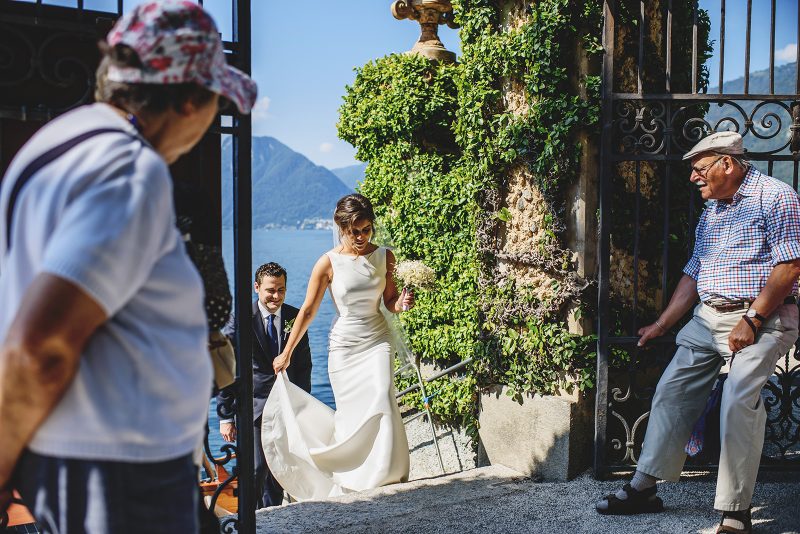
Alan Law: What would be your top tips to help someone become better at the documentary side of wedding photography specifically?
Ross Harvey: Street photography, and also just being a people watcher. Always put emotional value above everything, because the most valuable moments you can ever capture in a photograph are when there’s emotional value or a novelty, and both for an absolute golden winner. But-
Alan Law: You mentioned street photography there. Have you found it has had a big effect on your kind of wedding work?
Ross Harvey: Oh, absolutely. Street photography is incredibly difficult. It looks easy when you see it, but the patience you need and the skills on the spot are incredible. The more I practice street photography, the better I got at documentary and weddings and being creative. I was meant to be in Mexico shooting with the 8 Street, but I had a damned abdominal hernia.
Alan Law: Oh, no.
Ross Harvey: So I couldn’t do it, but luckily I was just laying in bed and my cat would sit on my lap. You know, you do a little crunch to lean forward, like your lower back’s down and your shoulders go up. I felt a ping and it just went back into place, so I fixed it. But I didn’t get to go to Mexico, but I managed to-
Alan Law: You managed to heal yourself.
Ross Harvey: Yeah, it’s really weird. I did a little crunch and I felt this internal pang. I was like, “That could be really bad or really good.” I stood up and it had completely gone, so I was like, “Oh, handy.”
Alan Law: Man, there are no boundaries to your kind of skills.
Ross Harvey: Yeah, well I don’t think I could fix anybody else’s, and I wouldn’t want to try again, to be fair. I think I was a bit lucky.
Alan Law: Back to that street photography. You’ve done obviously lots of your own workshops. I’ve been on your workshop, which was brilliant. Recommend anyone, if Ross is doing more, definitely jump at the chance. Have you ever led a street photography workshop?
Ross Harvey: No, I haven’t, but I will do that one day because I love it.
Alan Law: Yeah. I think people would love to go on that as well. I know we mentioned about nerves before. I’m not obsessed with nerves. But for when you teach as well, you spoke at lots of different conferences, I’ve seen you talk at conferences, Snap and NineDots, and you’re so confident. You don’t even get nervous about talking on stage then?
Ross Harvey: I do, yes. That’s why I mentioned when I used that example of stage fright before. I get hit with butterflies and excitement, but it’s not really scared. It’s just, you’re full of adrenaline. You’re literally sometimes shaking because you just want to get up there and do it. But at the same time you’re thinking, “Am I petrified or am I excited? I can’t really tell, so I’m going to make it excited.”
Alan Law: I’ve got to try that. I’m going to try it. I’m going to try it definitely.
Ross Harvey: The worst bit is the intro, like the first sentence is the hardest bit. I always think of The Simpsons, “Hi, I’m Troy McClure. You may remember me.” That’s what I want to go up and do every time. But-
Alan Law: You should do it. You should do it. Regarding editing specifically, a lot of people like to be able to edit as quickly as possible. But you have a different approach to this, I think, don’t you? Can you tell us more about that?
Ross Harvey: Oh, yeah. Yeah. That was in the NineDots group. I didn’t know if I was going to offend people. But that was aimed at no one in particular, but-
Alan Law: No, of course.
Ross Harvey: The caveat is if you can edit really well, you can edit quickly. There’s nothing wrong with editing quickly if you’re doing it to the level that you’re happy with. The problem is when people try and reduce their editing speed when they haven’t really nailed their edit anyway. Because you might edit quickly and you might be able to post “I did a wedding in two, three hours.” But if your white balance is off and your exposure’s off and you haven’t transformed a picture in the way that you could have, I think you’re doing yourself a disservice. Because you can completely transform what you think is a standard picture to make it look exceptional if you just put the effort in and you really think about what the final product of that picture can be. If you do that on every photo … I spend hours and hours editing now. But I demand that of myself because I’m at a high level and I want to get even higher. I have to have perfect white balance. I look back at some of my blog posts that are on the website at the moment and I’m thinking, “Oh, that’s off there, that’s off there, that’s off there.” So the new work I’ve got is even more consistent because I’ve been pushing myself.
Alan Law: Does it take you a lot longer to edit a wedding now?
Ross Harvey: Yes, but if you remember, I shot 12 weddings this year.
Alan Law: Yeah, so you have a lot more time.
Ross Harvey: I have more time, so I put that effort in. So I’m still probably editing less than most people who are shooting 30 weddings. Or maybe equal, to be honest.
Alan Law: Each wedding’s just getting a lot more attention then, I guess.
Ross Harvey: Yeah, and I’m very, very meticulous. Like anally retentive, basically. So I don’t just retouch people’s spots if they’ve got them. I balance everything in the frame. I clean up all windows, floors. I get rid of distractions and things.
Alan Law: Okay. You must have noticed they’re a noticeable better end product because of this.
Ross Harvey: It’s just really clean and elegant, professional and consistent, and that’s exactly what I want for my brand. Yeah. I nearly made a whole gallery available to every single person to see recently, because I want to show that you can go through a set of 700 pictures and it’s just so damn consistent. That’s my goal now, is to look through the whole gallery and just think every single picture could stand by itself.
Ross Harvey: If you’ve got a blog post and you post it on like Facebook, it would sometimes pick a random picture as a thumbnail. If it was one you didn’t like, you’d be like, “Ahh, that’s irritating. I’m going to change that.” I kind of want to … Obviously I don’t achieve this because some are better than the others, but I want any single picture to be able to be any picked from a whole wedding and I’ll be happy with it being online.
Alan Law: That’s a great goal, isn’t it? That is a good goal.
Ross Harvey: I mean, I’m not there yet because you can’t possibly have every picture that level. I’m nowhere near it, but that’s the goal I’m going for. So that means I just put a lot of effort into every single picture.
Alan Law: So, you’ve won all these awards. You’re a great wedding photographer obviously. Spoke at all these conferences. Master of the mind as well, a musician. Is there anything that Ross Harvey just sucks at? Is just really bad at?
Ross Harvey: Well, I can’t actually play a musical instrument. I pretty much suck at all of them. Thankfully because I’ve got a keyboard in front of me, I can just … I’ve got a good ear so I can tap things like a monkey until it sounds good and I’m like, “Oh, that’s good.”
Ross Harvey: But I’m terrible at geography. I’m terrible at history. Like, I think my IQ drops to that of about a dead goldfish if you ask me about geography or history.
Alan Law: Okay, cool. I think there’s time for a last question here. What do you find the most challenging aspect of being a wedding photographer to be?
Ross Harvey: Well, that’s a tough question.
Alan Law: Yeah, I just thought I’d throw a difficult one in there.
Ross Harvey: Cheers, Alan. “Just come on the podcast, Ross, be a nice easy chat”. Throw a curve ball at me. Right. The most challenging bit of being a wedding photographer.
Alan Law: Yeah.
Ross Harvey: I think it’s self belief, actually. It’s definitely self belief. That is linked to social media and it’s linked to everything … It’s managing to stay creative and happy and confident with yourself, happy with your work, and on a path that suits you and not the industry. I think that’s the most challenging thing because social media is taking over people’s lives and it can take over your direction and happiness if you’re not careful. So it has to be managed. So yeah, self belief and self worth, and understanding that just do your own thing. Don’t get distracted.
Alan Law: That’s cool, man. Great advice. Man, Ross, thank you. Thanks so much for your time, man. That was so interesting. That was really great. Thank you.
Ross Harvey: My pleasure, man. Thanks for the invite.
Alan Law: For people who are listening on the website, I will put a link to your site. I definitely recommend if Ross, you’re going to do more workshops, if you are, that people get on it. It’s one of the best workshops I’ve ever been on. It’s just so great meeting you as well; such a lovely guy. So yeah, thanks again man.
Ross Harvey: Cheers, bud I look forward to seeing you soon.
Alan Law: Yes, yes. And we’re going to try and regain the NineDots table tennis championship.
Ross Harvey: If that happens again randomly, that would be amazing.
Alan Law: Thanks, man.
Ross Harvey: Cheers, buddy. Bye bye.
***********************************************************
Thanks again, so much, to Ross for this great interview! Check out his website over here (which, depending on when you’re viewing this page/listening to this episode, may be his shiny new one that he mentions, or his – still great – slightly older one…)
If you enjoyed this episode, you can subscribe to the This is Reportage Podcast on iTunes – we’ll be releasing a new episode weekly. If you really enjoyed it, then we’d love it if you can spare a few moments to leave us a review and/or a rating as well – thanks so much in advance!
You can also find all our available wedding photography podcast episodes – with transcripts, too. If Spotify is more your thing, then we’re over there too.
Finally, if you’re not already a member, head over here to see all the benefits of joining us – we feature the very best in documentary wedding photography, because moments matter most. Members receive an unlimited number of images on their profile, 60 Reportage Award and 18 Story Award entries per year, and lots more too…
